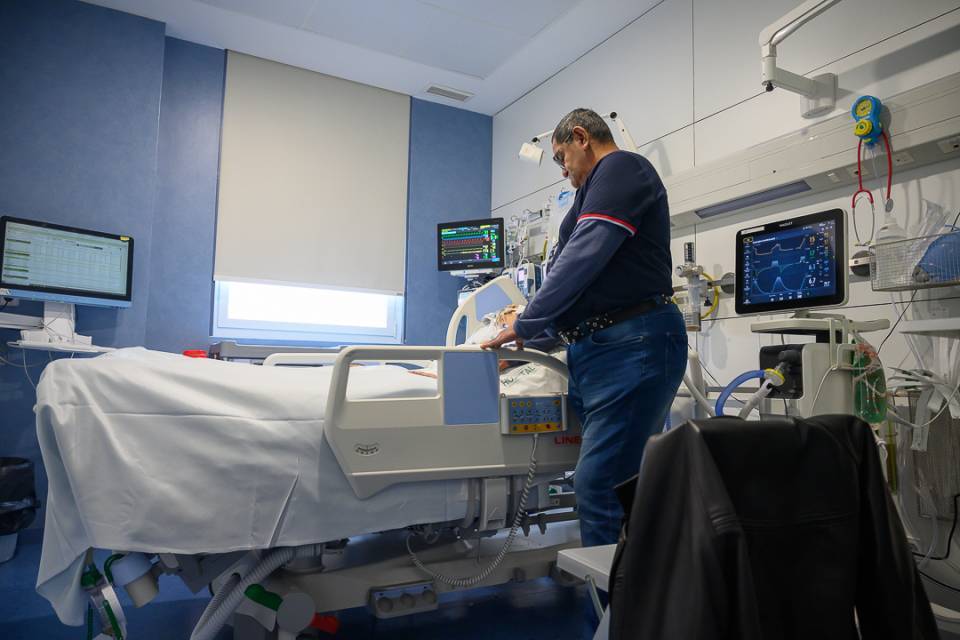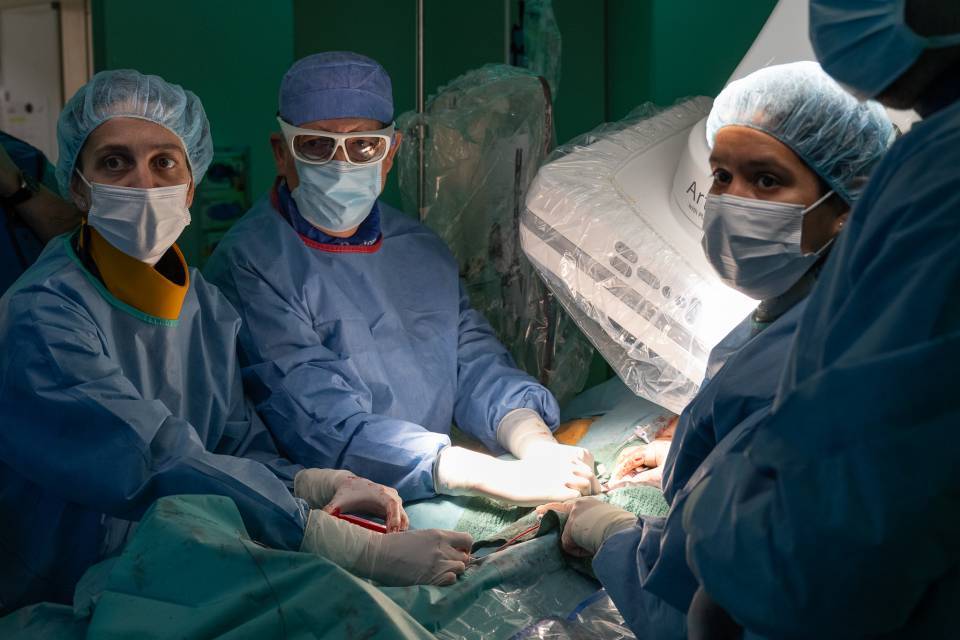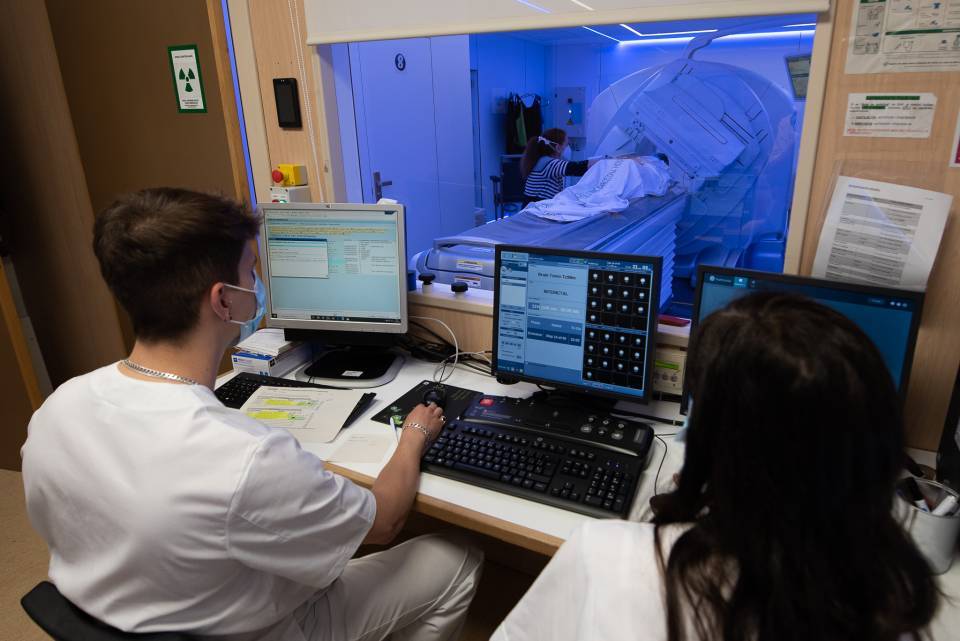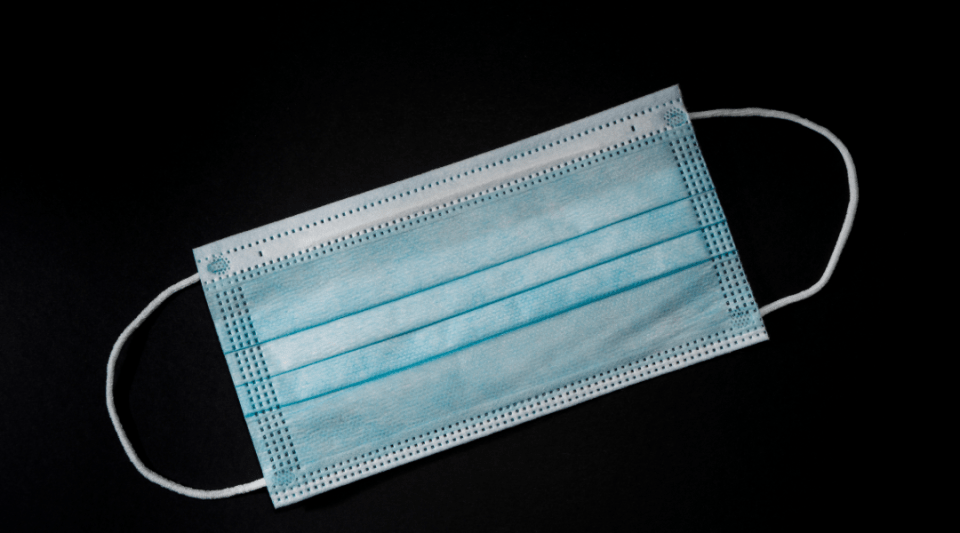At the start of this year, the Respiratory Intensive Care Unit at the Hospital Clínic Barcelona took a step forward in the humanization process. This involves a series of changes that have been introduced both in terms of space and in the way of working, aimed at making this healthcare facility a more open, flexible and friendly place for patients and their visitors.
These changes include giving visitors free access to the ICU twenty-four hours a day, seven days a week. This means that, if they want, visiting friends and relatives can even stay there overnight. They can also be present during ward rounds and have direct contact with the professionals caring for the patient. In order to make their stay more pleasant, a visitors rest area has also been set up near the entrance to the RICU, with armchairs, small tables, access to power outlets for charging mobile devices, and lockers where they can leave their belongings before accessing the unit.
However, the changes have not only been physical and affected the visiting hours, since the way the staff work has also had to be changed. “Internally, we have had to work hard on the change mindset” explains Montse Medina, nursing coordinator in the RICU. Moreover, she adds that many professionals currently working in the RICU started their career during the COVID-19 pandemic, where normality involved restrictions on visits. “And, for this reason, the change seemed like an even greater challenge," she adds. In the period prior to implementation, surveys were also conducted with professionals and visitors to assess what opening the ICU twenty-four hours a day would entail. The surveys are expected to be repeated six months after implementation in order to compare the results.
This initiative to humanize the RICU is part of the trend to open up intensive care units to make them more accessible. “It is inspired by the Anglo-Saxon model and is the direction that most modern intensive care units will be heading in in the future,” explains Dr Joan Ramon Badia, who is currently the director of the Clínic Respiratory Institute and is also one of the driving forces behind the project, having worked in intensive care at the RICU for many years. He also adds that, in this case, the Clínic’s RICU is at the forefront, but the rest of the hospital’s ICUs are also working on heading in this direction.
These changes are extremely important because intensive care units are often a hostile place, which is draining for both patients and visitors as well as for the professionals who work there. On the one hand, the patients admitted are in a serious condition, surrounded by a lot of technology, and their friends and relatives can experience difficult situations. And, on the other hand, the professionals are under a lot of pressure and significant psychological strain.
Two months after these changes started to be implemented, the result is positive. This is how Sònia Martín sees it. Her son was admitted to the RICU two weeks ago: “Free access is good for both him and for me: for him because he doesn’t feel so alone, and for me because I have more access to medical information.” This, she says, generates much less anxiety and facilitates emotional support, “a part that is sometimes forgotten and that is very important for families who have a loved one hospitalized.”




